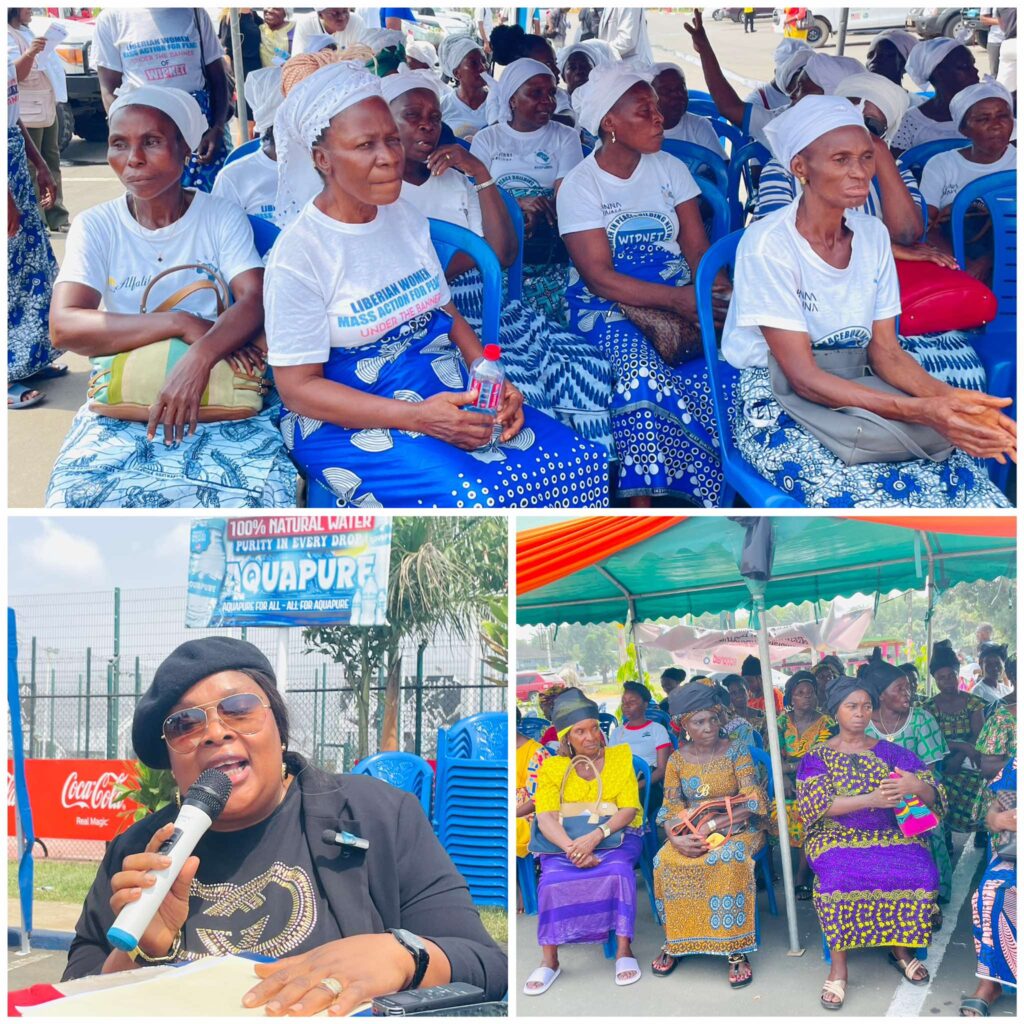STAKEHOLDERS UNITE TO END FGM IN LIBERIA MARKING INTERNATIONAL DAY OF ZERO TOLERANCE

By Laymah Kollie
February 7, 2025
Monrovia: The Liberian government, in collaboration with national and international partners, are intensifying efforts to eliminate Female Genital Mutilation (FGM) in Liberia. The Ministry of Gender, Children, and Social Protection, alongside rural women’s organizations and global stakeholders are working to address the challenges girls face across Liberia.
Their commitment was demonstrated as they joined hundreds of women at Invisible Park, in Monrovia on Thursday, February 6, 2025, to commemorate the International Day of Zero Tolerance for Female Genital Mutilation. The event was attended by representatives from the National Council of Chiefs and Elders, government ministries and agencies, UN Women, rural women’s groups, and international organizations.
Observed annually on February 6, the International Day of Zero Tolerance for Female Genital Mutilation was introduced in 2003 by the United Nations Population Fund (UNFPA) and UNICEF as part of a global campaign to eradicate FGM.
The event serves as a critical platform for reaffirming collective commitments to ending FGM and safeguarding the rights and dignity of women and girls worldwide. FGM involves altering or injuring female genitalia for non-medical reasons and is internationally recognized as a human rights violation. According to UNFPA, more than 230 million girls and women worldwide are FGM survivors, with an estimated 27 million additional girls at risk over the next five years. In 2025 alone, nearly 4.4 million girls are projected to be at risk.
The observance of this day in Liberia brought together legislators, traditional leaders, government officials, and international partners to develop equitable solutions to this pressing issue. Severing as Keynote Speaker, Representative Moima Briggs Mensah of Bong County six District, reaffirmed her commitment to passing legislation to abolish FGM.
She proposed modifying the FGM bill to remove harmful practices while preserving positive aspects of cultural traditions. She also called for the establishment of a women’s court to adjudicate cases of domestic violence and gender-based abuse.
She also urged women to fight for 40% of every leadership position to compete with their male counterparts. “Let’s identify our interests by identifying the strategy men can use to dominate women in getting positions in the time of politics.” She added. Deputy Gender Minister Atty. Laura Golakeh highlighted this year’s global theme, “Her Voice, Her Future,” which underscores the importance of girls and women advocating for their rights. Liberia is observing the day under the national theme: “Her Voice, Her Future: Let’s Act Now by Ending FGM and Preserving Our Heritage.” She stressed the urgency of legislative reforms, awareness campaigns, and survivor empowerment as crucial steps toward eliminating FGM.
Atty. Laura Golakeh added that the Ministry of Gender, Children, and Social Protection remains resolute in its efforts to strengthen advocacy, policy implementation, and as well as community engagement to eradicate FGM in Liberia, asserting, “We call on all stakeholders, including traditional leaders, civil society organizations, media, and international partners, to join forces in this noble fight.” Madam Massa Knadakai noted
Head of Women Zoes in Montserrado County emphasized the need for economic empowerment and alternative livelihood programs to combat FGM. She advocated for vocational training, small business loans, and education for traditional leaders’ children as viable means to reduce dependence on harmful cultural practices.
According to Knadakai, zoes solely deepen on cultural practices to sustain and fend for their families; as such, engaging in meaningful activities that take care of their needs will contribute to eliminating FGM in Liberia. Also, UN Women Liberia Country Representative Comfort Lamptey, reading the UN Secretary-General’s message, described FGM as a grave human rights violation causing lifelong physical and psychological harm.
She urged stronger partnerships between governments, grassroots organizations, and survivors to accelerate efforts to eradicate FGM by 2030. “Eradicating this vicious human rights violation is urgent, and it is possible, and as this year’s theme reminds us, we are making progress, but we must pick up the pace.
We must strengthen global movements to break down harmful attitudes, beliefs, and gender stereotypes. Sweden’s Ambassador to Liberia, Karl Backéus, speaking on behalf of his embassy, the EU, and the Embassy of Ireland, urged traditional leaders to uphold their commitments to end FGM. He emphasized that culture evolves and that protecting girls does not reject tradition but instead affirms Liberia’s commitment to dignity and progress.



